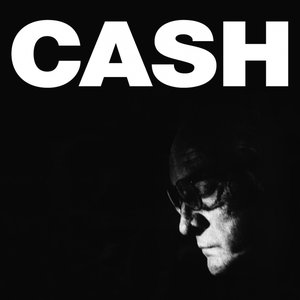Published on Sep 17, 2003
It wasn’t until I saw Johnny Cash buried that the loss of
country music’s greatest voice finally started to sink in. Though
the loss definitely hit the weekend after the news reports came
out, it still felt that it was just part of his mystique, his act.
From his salt of the earth voice to the haunting video “Hurt,”
death always seemed to be a part of who Cash was.
During the weekend following his death, I must have listened to
American IV: The Man Comes Around, the last full-length
recording Cash did with producer Rick Rubin, five or six times.
There were better albums that represented Cash’s full aura (check
out his Folsom or San Quentin prison recordings) or even the first
album of the American sessions. Still,
American IV: The Man Comes Around was the first choice for
the mourning process, mostly because Cash likely knew this was his
final full-length recording.
The Man Comes Around follows the same, simple formula Rubin
and Cash followed for about a decade: do some wicked covers, mix in
some newer material, all with minimal arrangements. While the
fourth outing has some predictability problems, that will still not
prevent the hair on your arms from standing from listening to
“Hurt,” the giddy pleasure of listening to one of the most unlikely
covers in Cash’s career (“Personal Jesus”) and some originals that
show Cash was still making relevant music up until his death (the
title track and “Sam Hall”).
Of course, the song that will forever define
The Man Comes Around will be his cover of Nine Inch Nails’
“Hurt.” (Memo to MTV video-voting panel: sucks to be you right now.
Heyah, I’m one of the biggest Missy Elliott fans out there, but
even if Cash were to have lived another ten years, the video “Hurt”
would have still had more of an impact and lingered longer in
viewers’ heads than Elliott’s “Work It.” Call it MTV’s version of
choosing
Shakespeare in Love over
Saving Private Ryan.) Cash gave “Hurt” a bedrock depth to a
song that was in danger of fading into obscurity. Sorry Trent
Reznor, Cash now forever owns “Hurt.” However, it’s a fair
tradeoff; Cash’s barren, haunting version showcased what a gifted
songwriter Reznor is. Far too many older critics have criticized
Reznor for being a whiny byproduct of Generation X. But Cash’s
aching delivery of every lyric pulled listeners in forced them to
absorb lyrics that are commonly buried under layers of white noise.
Depeche Mode and Soundgarden owe similar debts to Cash as he gave a
legitimate voice to the underappreciated songwriting talents of
these bands.
Of course, some versions do not work as well. Fiona Apple has a
fantastic voice, but “Bridge Over Troubled Water” wasn’t the best
song for a duet between the two distinct voices. Cash does a fairly
straightforward cover of Sting’s “I Hung My Head” and the Beatles’
“In My Life,” but he has done far better covers.
While Cash was extremely frail during the recording session of
The Man Comes Around, his voice remained powerful enough to
keep your attention for all 15 tracks. The funeral imagery of
“Streets of Laredo” leaves the listener with an eerie chill, but
the closer, “We’ll Meet Again” ends
The Man Comes Around on a mischievous, slightly humorous
note, especially with the unnecessary, but charming addition of
background singers at the final stanza.
Ever since Rubin teamed with Cash, music geeks have obsessed
about what tunes and tunes deserved to get the Cash treatment.
Radiohead’s perceived chilly, distanced music could have been given
a dose of biblical warmth by Cash, he could have given a few more
layers of goth to an Interpol song or shined a light on the
songwriting talents of The Flaming Lips. Sadly, none of these dream
covers will ever come to be. In a few months, Universal plans on
releasing a full box set of Cash’s American recordings. It’s well
worth the investment. Until then, pick up
The Man Comes Around. Even if you plan on getting the box
set, it’s worth buying twice and serves as a fitting end to one of
the pillars of modern music.
